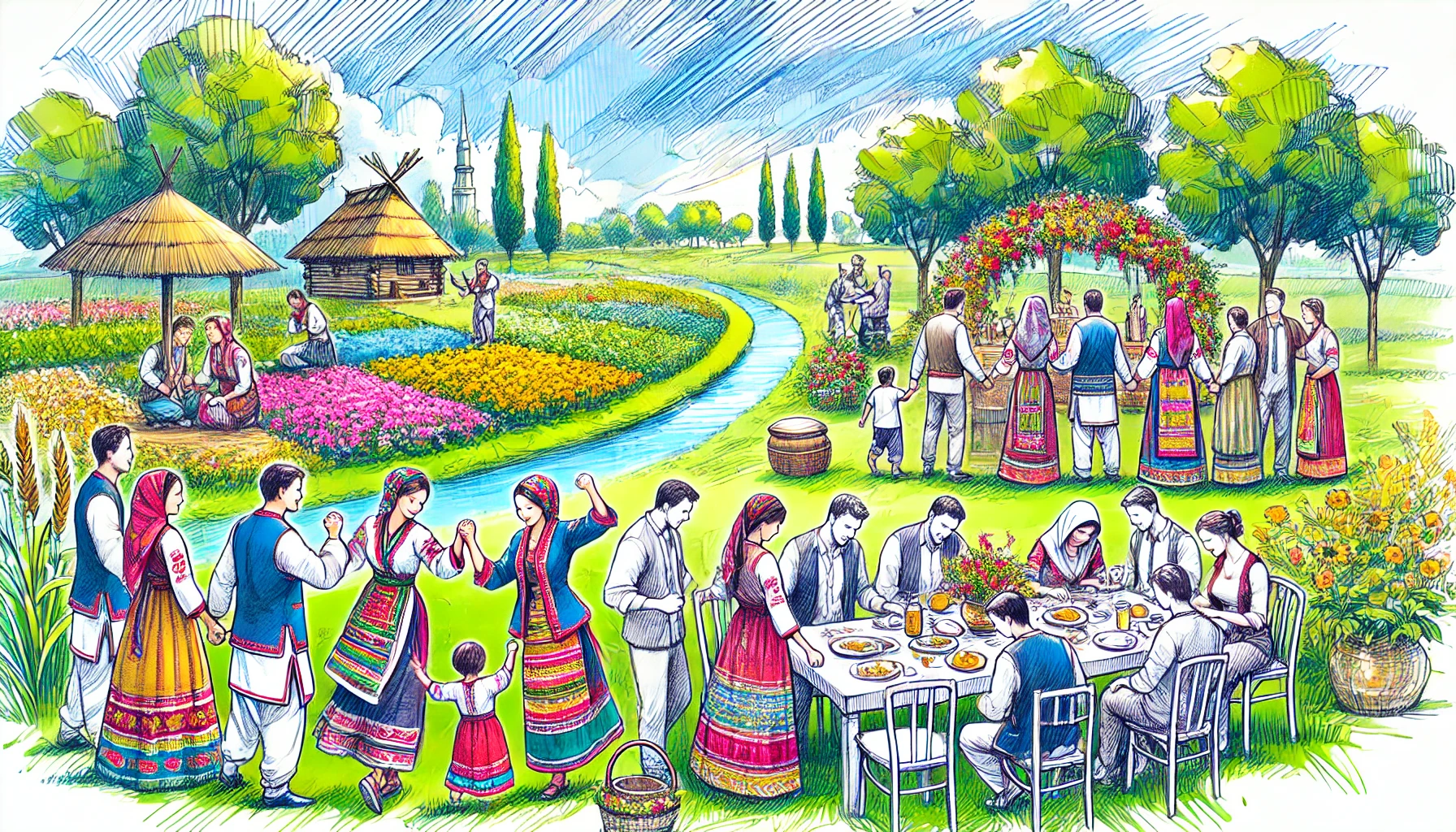Incorporating cultural traditions into your family life is a powerful way to celebrate heritage, foster a sense of identity, and strengthen family bonds. Cultural traditions provide a unique opportunity to teach children about their roots, honor ancestors, and create a sense of belonging. By embracing and integrating these practices, families can create meaningful rituals that enrich their lives and promote understanding and respect for their cultural backgrounds.
Understanding the importance of cultural traditions and finding ways to incorporate them into daily life can help families maintain a strong connection to their heritage. This blog explores ten practical ways to incorporate cultural traditions into your family life, offering actionable advice to celebrate and preserve your unique cultural identity.
- Celebrate Cultural Holidays and Festivals
- Identify significant cultural holidays and festivals that are meaningful to your family’s heritage.
- Learn about the history, significance, and customs associated with these celebrations.
- Plan special activities, meals, and rituals to mark these occasions, involving all family members.
- Decorate your home with traditional symbols, colors, and decorations.
- Share stories and legends related to the holidays, passing down knowledge and traditions to younger generations.
- Cook Traditional Foods
- Incorporate traditional recipes into your family’s meal plans, celebrating your cultural cuisine.
- Teach children how to prepare and cook traditional dishes, explaining the cultural significance behind each recipe.
- Host regular family cooking nights where everyone participates in making a cultural meal.
- Explore and experiment with new recipes to expand your culinary repertoire and celebrate different aspects of your culture.
- Share your traditional foods with friends and neighbors to promote cultural exchange and appreciation.
- Learn and Teach Your Native Language
- If your family has a native language, make an effort to learn and practice it regularly.
- Incorporate the language into daily conversations, greetings, and routines.
- Use language-learning resources such as books, apps, and classes to support your efforts.
- Teach children simple phrases, songs, and stories in your native language.
- Celebrate progress by hosting family language nights where everyone practices and shares what they’ve learned.
- Engage in Traditional Arts and Crafts
- Explore traditional arts and crafts that are significant to your cultural heritage.
- Organize family craft nights to create traditional items such as pottery, textiles, or jewelry.
- Use these activities to teach children about the cultural significance and history behind each craft.
- Display your family’s creations in your home to celebrate your cultural heritage.
- Attend workshops or classes to learn new skills and techniques from cultural artisans.
- Participate in Cultural Events and Communities
- Seek out cultural events, festivals, and activities in your local community.
- Attend cultural performances, exhibitions, and workshops to learn more about your heritage.
- Join cultural organizations or community groups that celebrate and promote your culture.
- Encourage children to participate in cultural dance, music, or art classes.
- Use these experiences to connect with others who share your cultural background and to foster a sense of community.
- Celebrate Cultural Milestones and Rites of Passage
- Recognize and celebrate important cultural milestones and rites of passage within your family.
- Plan ceremonies and gatherings to mark events such as birthdays, weddings, and coming-of-age rituals.
- Incorporate traditional customs, attire, and rituals into these celebrations.
- Share the stories and meanings behind these practices with younger family members.
- Create new family traditions that blend cultural rituals with your unique family values.
- Incorporate Cultural Stories and Folktales
- Share traditional stories, folktales, and myths from your cultural heritage with your family.
- Use storytelling as a regular family activity, particularly during special occasions or bedtime.
- Encourage children to retell and act out the stories, fostering creativity and cultural awareness.
- Create a family library of books and resources that celebrate your cultural stories.
- Discuss the morals, lessons, and cultural significance behind each tale.
- Practice Traditional Music and Dance
- Introduce your family to traditional music and dance forms from your cultural heritage.
- Listen to cultural music together and learn about the instruments and styles used.
- Take family dance lessons or practice traditional dances at home.
- Participate in cultural music and dance performances or attend local events.
- Encourage children to learn to play traditional musical instruments or join cultural dance groups.
- Honor Ancestors and Family History
- Research and document your family’s genealogy and cultural history.
- Create a family tree that includes stories, photos, and significant events from your heritage.
- Celebrate ancestors through rituals, memorials, and family gatherings.
- Teach children about their ancestors’ lives, contributions, and cultural significance.
- Visit ancestral homelands or significant cultural sites to deepen your family’s connection to its roots.
- Blend Cultural Traditions with Modern Life
- Find ways to incorporate cultural traditions into your modern lifestyle in meaningful ways.
- Adapt traditional practices to fit contemporary family routines and values.
- Create new traditions that honor your cultural heritage while reflecting your family’s unique identity.
- Use technology to explore and share cultural experiences, such as virtual museum tours or online cultural events.
- Celebrate the diversity and richness of your cultural heritage while embracing the present.
Conclusion
Incorporating cultural traditions into your family life is a powerful way to celebrate heritage, foster identity, and strengthen family bonds. By celebrating cultural holidays, cooking traditional foods, and learning your native language, families can create meaningful rituals that honor their roots. Engaging in traditional arts, participating in cultural events, and celebrating milestones further enriches family life and promotes cultural awareness.
Sharing cultural stories, practicing traditional music and dance, honoring ancestors, and blending traditions with modern life ensure that cultural heritage is preserved and cherished. By incorporating these practices, families can create a supportive and loving environment where every member feels connected to their cultural identity and proud of their heritage.

